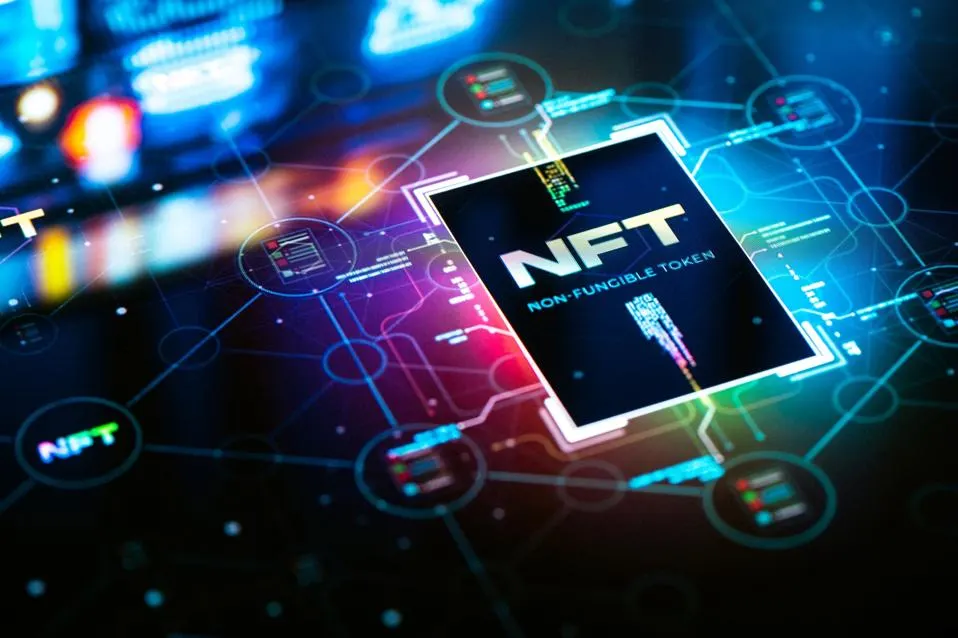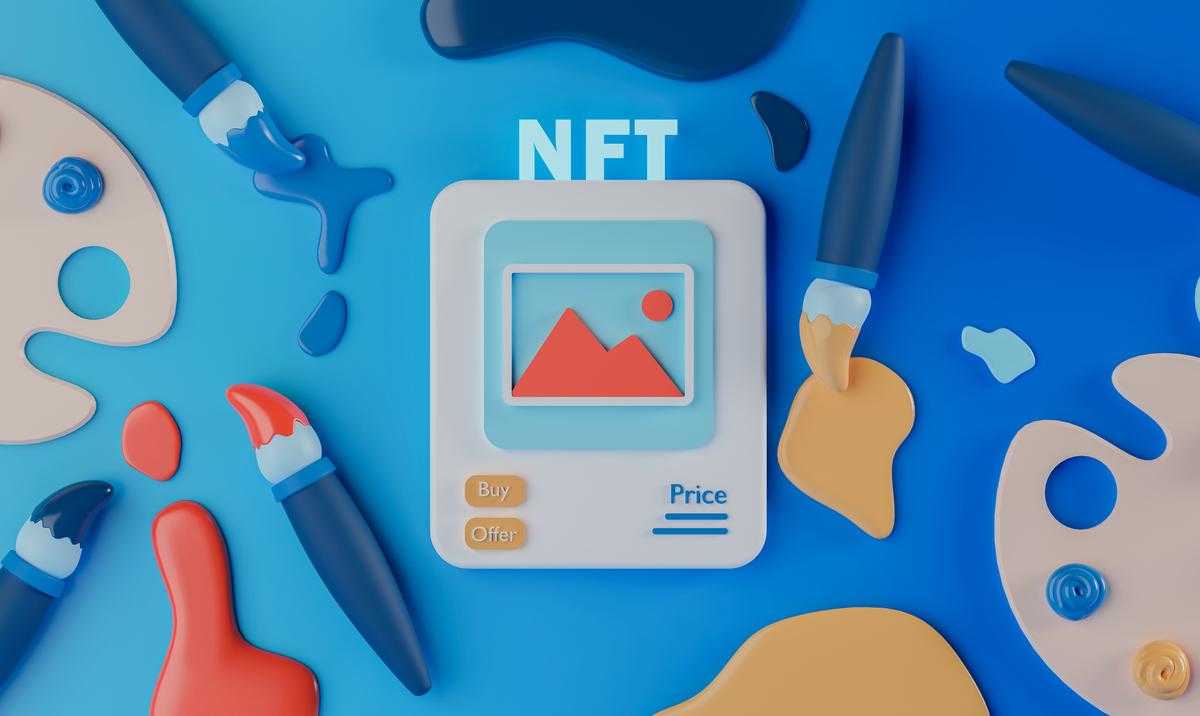
However, the extravagant deals and media whiz around non-fungible tokens (NFTs) veil a more perplexing and disturbing image of an innovation that is tormented by a large group of moral issues. These incorporate widespread tricks, fueling abundance imbalance, a stunning natural effect and, not least, the double-dealing of the specialists NFTs should enhance.
Ironicly NFTs were initially imagined as a moral remedy to a workmanship market that frequently neglected to compensate specialists for their work.
One of the principal NFTs was made because of the wild replicating and sharing of computerized craftsmanships on the web, frequently without attribution or remuneration proposed to the first specialists.
The thought was to make an exceptional sort of computerized symbolic that addressed responsibility for specific craftsmanship, like a computerized receipt or the deed to a block of land. Specialists could sell the tokens related with their work to determine a pay. It would likewise follow who claimed a specific craftsmanship anytime, showing provenance as far as possible back to the first craftsman.
It was trusted NFTs would give specialists more command over their work and make a flourishing and rewarding business sector for them to make a pay.
The blockchain appeared to be the best innovation for making simply such a token, with it being a long record of exchanges that is kept up with by a decentralized organization of PCs. The most famous tokens on blockchains are digital forms of money, as Bitcoin or Ether, however different sorts of tokens exist also.
The large contrast between a digital money token and a NFT is that the previous are fungible, as in any individual Bitcoin is practically indistinguishable and worth a similar sum as some other Bitcoin. Conversely, NFTs are non-fungible, so every one is interesting and they may be worth altogether different sums. Some NFTs likewise implant code that empower the craftsman to take a cut of all ensuing deals of that token, which could be a worthwhile type of income assuming their specialty values in esteem over the long haul and is offered to new purchasers.
What have I bought?

Starting around 2014, NFTs have developed and become more refined, many moving to the Ethereum blockchain. Most NFTs are basically a record of responsibility for specific computerized resource, similar to a picture or video. It is vital to take note of that the actual resource isn't put away on the blockchain - it very well may be put away on at least one servers some place on the web or disconnected - the NFT just holds back a connection or pointer to where the resource is put away.
As far as moral privileges, NFTs don't give the proprietor control of the protected innovation, for example, copyright, which as a rule stays with the craftsman. Possessing one likewise doesn't keep the resource from being seen, duplicated or downloaded by others; somebody could have paid US$23.7 million for that advanced troublemaker yet you can duplicate it however much you might want. Dissimilar to conventional property, a NFT doesn't give the proprietor an option to prohibit others from utilizing or profiting from what they own.
Each of the a NFT permits the proprietor to do is offer that NFT to another person. It resembles purchasing the deed to a plot of land, with the exception of you're not ready to fence it off, and you couldn't keep others from making a second (or third, or fourth… ) deed for a similar plot of land.
So what does a NFT proprietor actually claim? It's not the fine art, nor is it the option to keep others from getting to it. What they own is the NFT. This has driven certain individuals to recommend that purchasing a NFT just offers "boasting freedoms" over a specific piece of workmanship.
All things being equal, some obviously see esteem in that option to gloat - at times as much as of millions of dollars - yet those boasting privileges can include some significant downfalls to a considerable lot of the craftsmen that NFTs should benefit.
Crypto patrons

One of the fundamental selling points of NFTs is that they are a method for supporting specialists. Furthermore, there's no question that a few specialists have done very well by selling NFTs. In any case, the commitment of opening up new business sectors and new purchasers to more modest and arising craftsmen has, up until this point, neglected to emerge.
Like with ordinary craftsmanship, a larger part of the income from NFT deals has streamed to a little minority of well known specialists, with a minuscule extent of NFTs and purchasers representing a greater part of buys and deals.
Consequently, until now, NFTs have concentrated abundance among a couple of craftsmen and financial backers as opposed to spread it around. Also, as new specialists have entered the NFT circle, it has just additionally jam-packed the space, loaning more noteworthy benefit to those with the name acknowledgment or assets to publicize their work.
There have been drives to urge specialists to make NFTs of their work trying to take advantage of what has all the earmarks of being a worthwhile market, for example, financial speculator Imprint Carnegie working with craftsmen from the Buku-Larrnggay Mulka Center in Yirrkala in the Northern Domain. Be that as it may, to make a NFT on the Ethereum organization, the craftsman should pay blockchain handling charges, which could cost many dollars per exchange. On the off chance that the work of art doesn't sell and they don't have monetary support, they could wind up using cash on hand.
Shark infested
NFTs have additionally stung numerous specialists in alternate ways, especially through plagiarisation, where another person makes a NFT of their work of art and sells it without their being familiar with it or getting any income from it. This has constrained a few craftsmen, similar to DC Comic books craftsman Liam Sharp, off stages like DeviantArt, where they recently showed their work. The issue got so awful that in January 2022 one of the primary stages for exchanging NFTs reported that more than 80% of the NFTs made free of charge on its foundation were "copied works, counterfeit assortments, and spam."
NFTs are likewise defenseless against extortion. One famous trick is called wash exchanging, where at least one brokers trade NFTs among themselves, accordingly blowing up the cost prior to selling them on to some clueless purchaser.
Another normal trick is a mat force. This is where somebody produces buzz by reporting an especially intriguing NFT project with enormous commitments of future elements. Be that as it may, after the makers sell the principal tranche of NFTs, they close the task, take the cash and run. At times they have even locked the NFTs from being exchanged, keeping purchasers from recovering any of their cash by selling the NFTs on the open market.
One more illustration of NFT misrepresentation incorporates exemplary social designing, where con artists profess to be true agents of NFT commercial centers, along these lines accessing casualties' crypto wallets, empowering them to move digital currency or NFTs into their own wallets.
These tricks address a more profound moral issue than only a couple of scoundrel administrators taking advantage of interesting provisos. They're because of basic issues with the NFT framework itself since it contains not many securities against these sorts of exploits.
Decentralised means unregulated

One of the asserted benefits of the blockchain is its unregulated nature. The organization of innovations, monetary apparatuses, digital forms of money and NFTs is now and again gladly alluded to as decentralized finance (DeFi) by aficionados.
The liberated idea of DeFi likewise implies that clients are not dependent on banks or other customary establishments to deal with exchanges, so they are likewise not covered by the very guidelines and securities that individuals appreciate while utilizing a bank.
This has driven a few observers, including noticeable innovation columnist Cory Doctorow, to allude to DeFi as "shadow banking 2.0". This is a reference to the original of "shadow banking," which incorporated every one of the exceptionally dark and to a great extent unregulated monetary instruments that added to the worldwide monetary emergency in 2008.
Intensifying the issue is the consideration of "shrewd agreements" in numerous NFTs. These are little pieces of code that trigger under specific conditions, such as permitting a craftsman to get a future cut of deals. However, brilliant agreements have additionally been utilized for detestable purposes, for example, straightforwardly taking cash from individuals who own NFTs.
Hot air
Each time you make an exchange on the Ethereum organization, for example, trading a NFT, you consume about 229 kilowatt hours (kWh) of force, creating 128 kilograms of carbon dioxide same (CO2e). That is about a similar measure of energy consumed by a run of the mill NSW home more than two entire weeks. Ethereum, the most famous stage for NFTs, consumes almost 100 terawatt hours every year, which is similar to the energy utilization of Ghana, emanating north of 54 million tons of CO2e.
This is on the grounds that blockchains like Bitcoin and Ethereum utilize immense measures of figuring power, conveyed over endless individual PCs all over the planet, to consistently approve and cross-approve each new exchange. The expense isn't just as far as energy costs yet additionally their effect in the world.
While numerous different items mark their fossil fuel byproducts, and many proposition buyers low carbon choices or carbon balances, no such choices are accessible for NFTs. As a matter of fact, if you somehow managed to balance the outflows of a solitary exchange at current Australian carbon credit costs of around $30 per ton of CO2e, it would cost you about $4. Furthermore, assuming you attempted to balance the complete outflows of the whole Ethereum organization, it would cost $1.6 billion bucks - not that there'd probably be an adequate number of counterbalances to cover that carbon obligation.
Is it moral to purchase NFTs?
Regardless of whether you care about specialists getting a pay from their work and you need to open up new business sectors to more modest and arising craftsmen, then, at that point, it's hard to legitimize NFTs on these grounds alone.
Assuming you accept that a moral commercial center should have fundamental buyer assurances to forestall tricks and misrepresentation, then, at that point, it's challenging to underwrite NFTs given their liberated nature, intricacy and the numerous provisos that are defenseless against misuse.
What's more, assuming you view yourself as morally liable for the emanations that you produce, especially those
